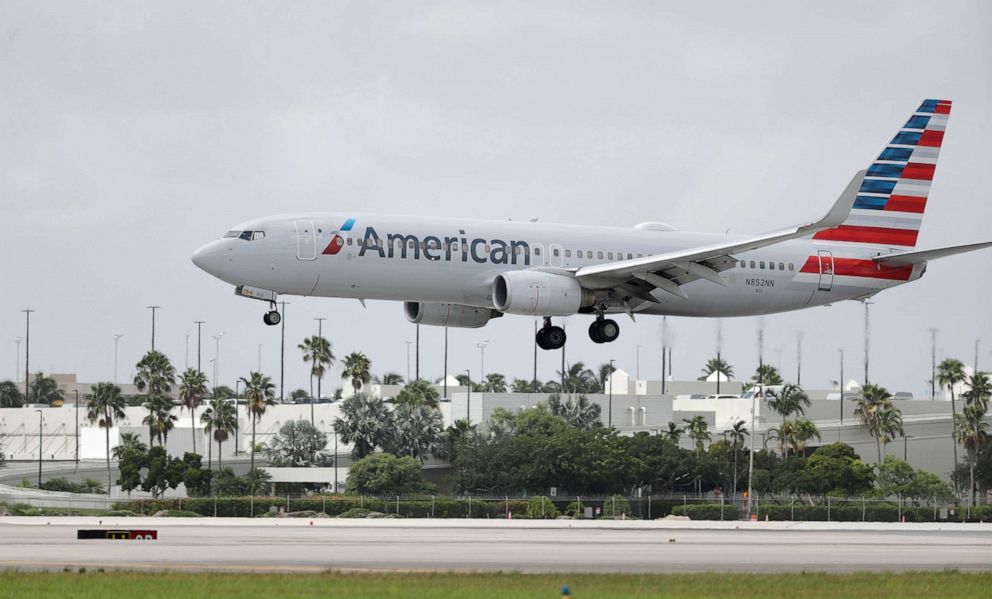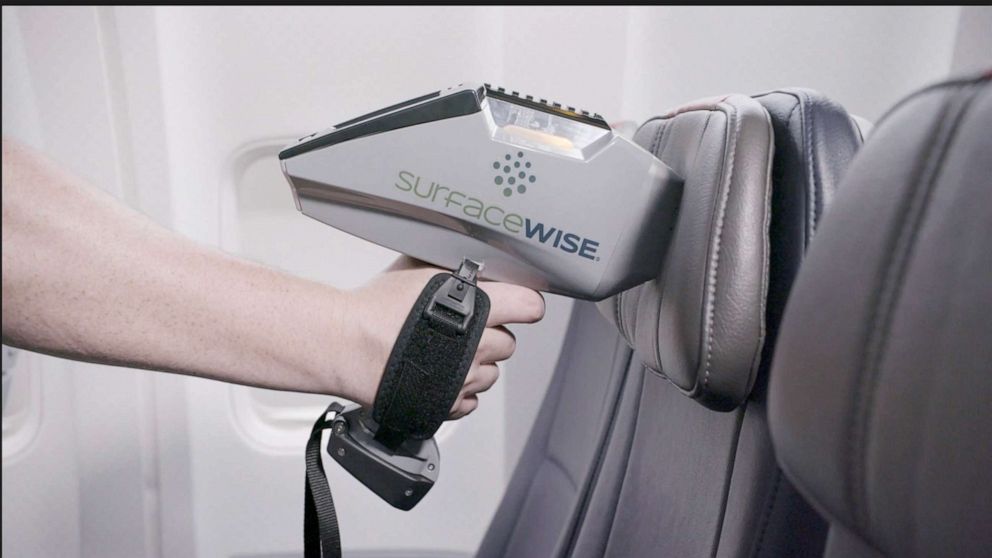American to spray some planes with EPA-approved 'long-lasting' COVID-19 disinfectant
American Airlines is preparing to spray planes flying in and out of Texas with the first "long-lasting" disinfectant product approved by the U.S. Environmental Protection Agency (EPA) to kill the SARS-CoV2 virus on surfaces between routine cleanings.
The EPA granted emergency authorization for the Allied BioScience product, Surfacewise 2, on Monday. It is effective against the SARS-CoV2 virus for up to 7 days after a single application, according to testing by the agency. Texas had requested the authorization.
“SurfaceWise2 creates an invisible barrier on surfaces, which physically breaks down and kills virus cells,” said Dr. Charles Gerba, an infectious disease expert who works with Allied BioScience.
Dr. Gerba found in his studies that these coated surfaces were effective against human coronavirus (HCoV) 229E, "reducing the concentration of these viruses by greater than 90% in 10 minutes and by greater than 99.9% after two hours of contact."

“This helps protect passengers and crew members against the transmission of coronavirus via surfaces," Dr. Gerba said, "particularly on high-touch areas such as seats, armrests, tray tables and overhead bin doors."
EPA reviewed the data provided by Allied BioScience and determined that the product was effective enough for the emergency approval. The agency is still looking at whether there is enough information to approve it for use on all surfaces, at which point it could be made available to the general public.
All major U.S. airlines have implemented measures such as fogging and electrostatic spraying on their aircraft in the fight against the virus, but they have turned to different procedures with various cleaning ingredients. Wheeler said that if claims are being made about other products that can kill the virus for several days, or up to 30 days, those claims have not been vetted by the EPA.
"No other product has been approved effective against coronavirus for an extended period of time. The agency is constantly looking at claims being made by other companies, and we reserve the right and have taken enforcement actions and will continue to vigorously enforce the rules to make sure that people are not making false claims against products that are not effective," he said.
American plans to begin using the SurfaceWise2 in their cabins in the coming months, but the airline is currently limited to applying the product on aircraft that fly in and out of Texas because the EPA approval is limited to the state.
“SurfaceWise2 will make the travel experience even safer for those who are ready to return to the skies and reopen our country for business," American Airlines Chief Operating Officer David Seymour said after the EPA's announcement.

The EPA has not found any adverse health risks from coming in contact with the disinfectant on a surface, although products using the main ingredient - quartenary ammonia - have been found to contribute to asthma with high levels of exposure.
"These compounds that are designed to sterilize or disinfect an area tend to be irritants," Dr. Peter Orris, a leading occupational and environmental health authority at the University of Illinois Hospital and Health Sciences System, told ABC News. "And there can be other toxic reactions depending on the dose in humans, so people should be cautious in their use and follow the instructions carefully."
In addition to American Airlines, the EPA also approved SurfaceWise 2 for use at Texas Methodist Health Total Orthopedics Sports & Spine Clinics. So far only Texas has been approved for emergency use in those two specific cases but Wheeler said they expect more states to apply for both airlines and other spaces like schools. The agency will review each application to ensure the product will be effective on different types of surfaces.
Allied BioScience says they are pursuing the emergency waiver across all 50 states.
Wheeler called the approval of Surfacewise 2 a "game changing announcement," but also made clear that the product is not intended to replace other measures such as frequent cleaning with disinfectants, hand washing, wearing masks and social distancing.
ABC News' Sam Sweeney and Kaitlyn Folmer contributed to this report.



